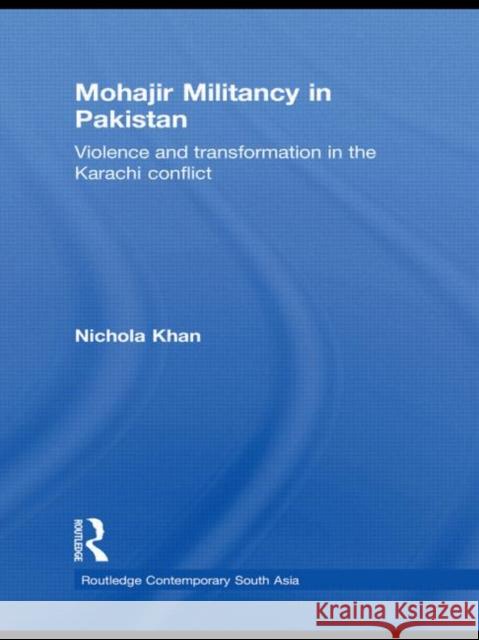Mohajir Militancy in Pakistan: Violence and Transformation in the Karachi Conflict » książka
Mohajir Militancy in Pakistan: Violence and Transformation in the Karachi Conflict
ISBN-13: 9780415554909 / Angielski / Twarda / 2010 / 208 str.
Mohajir Militancy in Pakistan: Violence and Transformation in the Karachi Conflict
ISBN-13: 9780415554909 / Angielski / Twarda / 2010 / 208 str.
(netto: 740,24 VAT: 5%)
Najniższa cena z 30 dni: 730,42
ok. 22 dni roboczych
Dostawa w 2026 r.
Darmowa dostawa!
This text addresses the everyday causes and appeal of longterm involvement in extreme political violence in the urban Pakistan. It injects a more critical and innovative voice into the ongoing debates about the nature and meaning of radicalisation and violence.
This book addresses the everyday causes and appeal of longterm involvement in extreme political violence in the urban Pakistan. It integrates governance and civil society issues, as well as the political and psychological dimensions of processes of mobilization and violence at micro-, meso- and macro- levels. Taking Pakistan’s ethnonationalist Mohajir party, the Muttahida Qaumi Movement (MQM) as a case study, the book explores how certain men from the ethnic community of Mohajirs are recruited to the roles and statuses of political killers, and sustain violence as a primary social identity and lifestyle over a period of some years. The author contributes to understandings of violence by drawing on detailed fieldwork in areas involved in the Karachi conflict and combining perspectives from politics, history, anthropology and psychology. In the book, she also updates the current situation of social and cultural change in Karachi, which is dominantly framed in terms of Islamist radicalisation and modernisation. Competing processes, broadly co-opted by MQM and Jamaat e Islami (JI), are transforming Karachi’s cultural and visual landscape. This book injects a more critical and innovative voice into the ongoing debates about the nature and meaning of radicalisation and violence and the specific implications it has for similar conflicts in Pakistan and the developing world.











